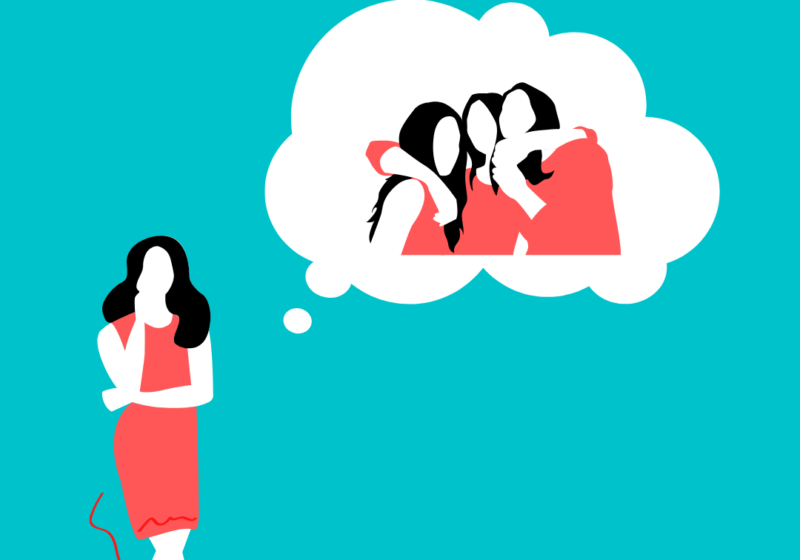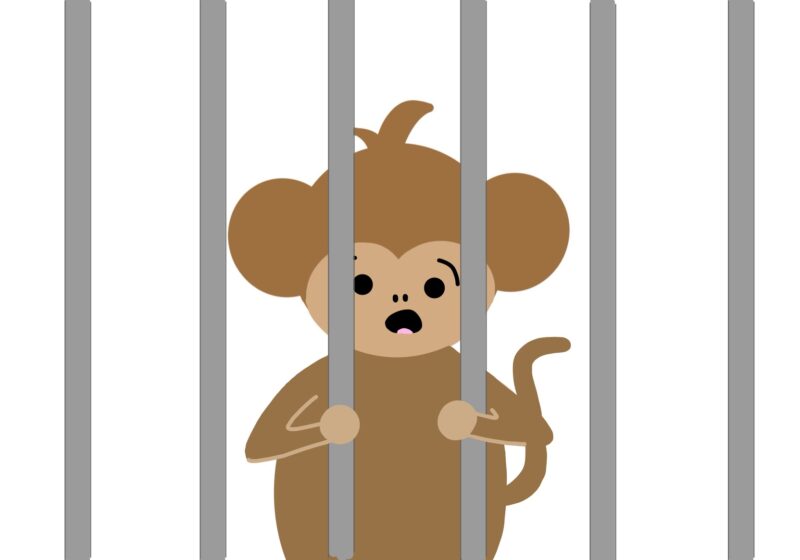Why do we rewatch those clichéd high school or college movies over and over? You know the type — a shy, awkward protagonist (who’s unrecognizably hot after they take their glasses off for some reason) who finds two best friends and manages to catch the eye of the most popular jock.
It’s no lie that we’ve all at some point secretly wished for a main character moment like this. These movies, with their 2D, superficial sidekicks and same-old boring hallways, depict high school and college as some of the best four years of our lives. What’s more, upperclassmen frequently tout this specific range of years as the time you finally find “your people.” And it seems that most people buy into this concept, too; just think of all the times you’ve felt pressured to find a gang to stick to after seeing that everyone around you has at least someone.
Everybody wants to be that perfect person — the one who’s got their shit together, effortlessly has tons of friends, and manages to get eight hours of sleep daily. It’s what I like to call the GMCC, the “glamorized main character complex.” I was just talking to my friend about this: “Why can’t I be the girl who drinks green tea matcha lattes, wakes up at 7 a.m. to go to the gym every morning, studies for tests weeks in advance, and sleeps by 11 p.m.?”
The most identifiable aspect of the GMCC is having a solid friend group that’s always got your back, or at least appearing to have one. However, this pressure to find “your people” is sometimes overwhelming, and the timing is different for each person. Personally, I found some of my closest friends back home during the summer after my senior year of high school, right before we all went off in different directions to college. Do I wish I had found them sooner? Perhaps, but then maybe we wouldn’t have shared the same laughter during our casual shenanigans and spontaneous ramen cravings. Or maybe we wouldn’t have realized how magical and utterly real our friendship was, because if it had been established since forever, we’d be accustomed to it and never would have experienced less. We would have taken it for granted and not been able to see how it made other forced and unnatural friendships pale in comparison.
Since college started, I’ve admittedly become much more extroverted. Maybe it’s a combination of a new environment, so many exciting new people from all over the world, and a new chance to rebrand myself, or maybe it’s the GMCC doing its work. Over the summer, I remember hearing that if you don’t find your best friends in the first week during orientation, you’d probably be screwed and doomed to spend the rest of the semester eating alone in Douglass. And that’s definitely not true. Some of my favorite people at UR are friends I’ve met in the randomest places at the most unexpected times, from our coincidental decision to go to the same table tennis GIM to sitting next to a once-stranger in a 300-person chem lecture. We can’t completely control when we find our people, period. Sometimes the friendships you put the most effort into end up one-sided and broken, and other times you may find yourself instantly bonding with the guy you met in the Starbucks line over your shared love of K-dramas.
So, please remember that this portrayal of idealized, effortless main-character-like friendships is unrelatable and only serves to fulfill our fantasies. I’m not saying that indulging in these alternate realities is a bad thing at all — everyone needs a good distraction from time to time. And while we all need and deserve our main character moments, we are not like the movies. We are real. And real cannot be forced.





